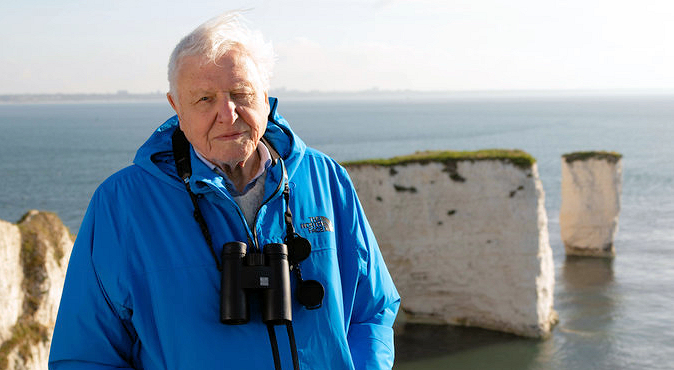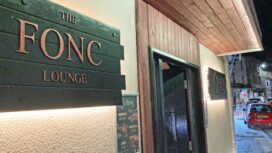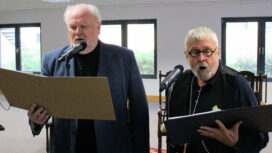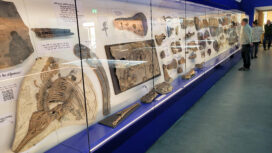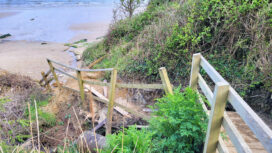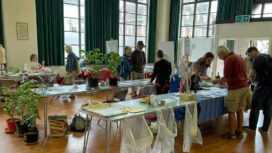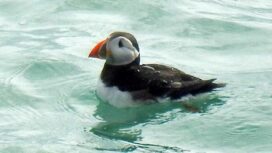The last ever wildlife series that Sir David Attenborough will present for the BBC will open from one of his favourite places in the British Isles – Old Harry, near Swanage.
Sir David, who is now 96 years old, was persuaded by the BBC to film one final wildlife programme on location, the five-part Wild Isles documentary which starts at 7 pm on Sunday 12th March 2023 on BBC1.
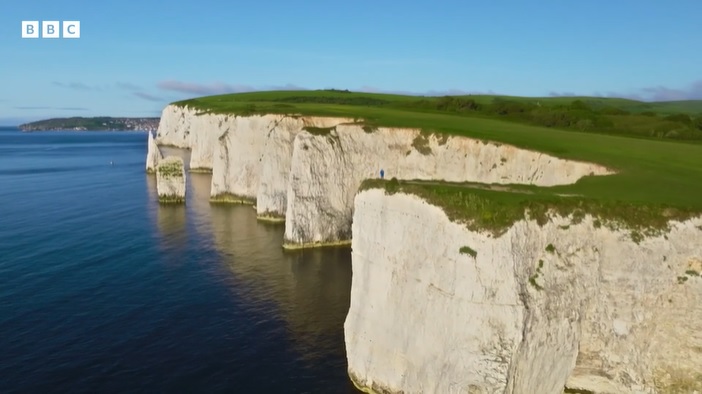
Sir David Attenborough pictured at Old Harry as the drone camera pulls away
Purbeck filming began at 4 am on a June morning
The very first scene has Sir David introducing the series standing alongside the Old Harry rocks at Studland and welcoming viewers to a place he calls astonishing, an extraordinary, dramatic and beautiful place – home.
He was in Purbeck at 4 am on a June morning in 2022 to film the sequence which opens his latest project, before he headed to the River Avon near Salisbury to watch mayflies trying to avoid becoming a meal for trout.
It was four years after filming his last location documentary, The Green Planet, and in the meantime he had talked about retirement following his appearance at the COP26 climate conference in Glasgow in 2021.
But he agreed to narrate Wild Isles after BBC producers persuaded him that he had the ideal perspective to reflect on the changing face and wildlife of the UK after seven decades of presenting natural history television.
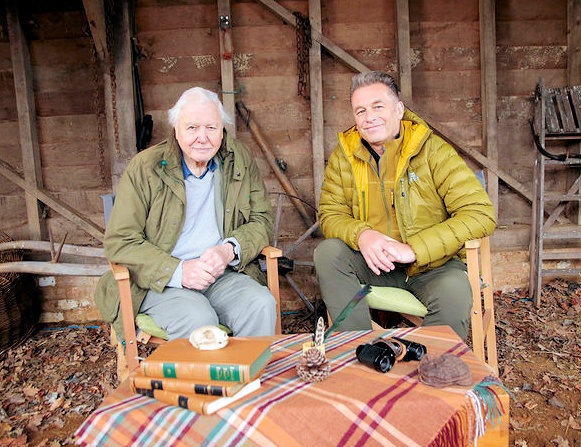
Sir David discusses his latest adventures with Chris Packham
Honoured to present from Old Harry
He has long had an affinity with the Jurassic Coast – he was a keen fossil collector as a child – and presented Attenborough and the Sea Dragon from Dorset in 2018.
He told film crew for Wild Isles that he felt honoured to present from Old Harry which he had always loved for its dramatic scenery, as well as from the five other filming locations which he and the producers chose together for his love of them, as much as for the dramatic story they tell.
Those include a hay meadow at Hogchester Nature Reserve in Charmouth in Dorset – similar to those he loved as a boy in Leicestershire which are now all but gone – and from Skomer island off Pembrokeshire to film puffin colonies.
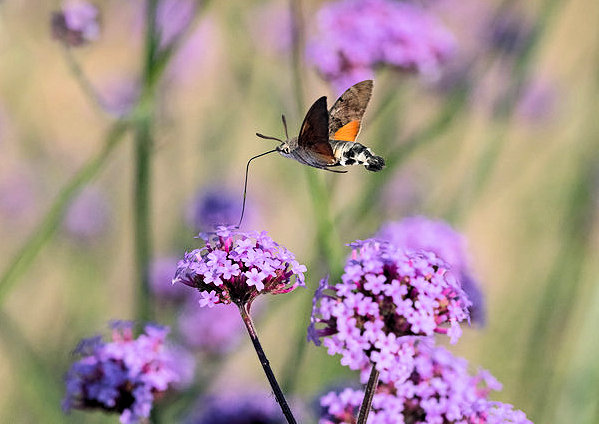
A hummingbird hawk moth in flight feeding from verbena in Dorset
“Nature in these islands is dramatic”
Sir David said:
“In my long life, I’ve been lucky enough to travel to almost every part of the globe and gaze upon some of its most beautiful and dramatic sights.
“But I can assure you that nature in these islands, if you know where to look, can be just as dramatic and spectacular as anything I’ve seen elsewhere.
“The British Isles are globally important for nature. In Wild Isles, we show why that is so and celebrate the wonders of these islands that we call home.”
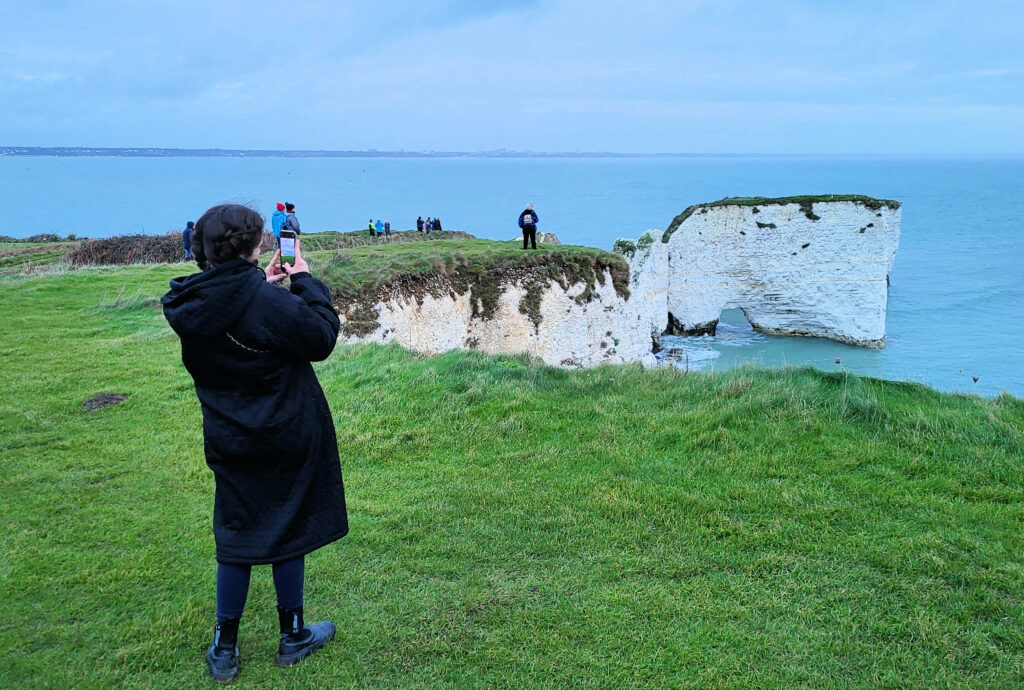
Old Harry stacks near Swanage are part of the iconic Purbeck landscape
“A lovely recognition of Purbeck landscape”
Old Harry rocks are part of the National Trust property portfolio in Dorset, and Jo Atkins from the National Trust said:
“We are really excited about the forthcoming series Wild Isles, and looking forward to enjoying lots of fabulous wildlife around the country this spring.
“It feels really significant to have Old Harry rocks and the adjacent coastline to feature in the trailer and is a lovely recognition of the beauty and natural richness of the Purbeck landscape.”
Remarkably, the series is the first that Sir David has filmed from Britain, which he says was because of internal politics at the BBC, but now he’s delighted to finally highlight such wonderful scenery.
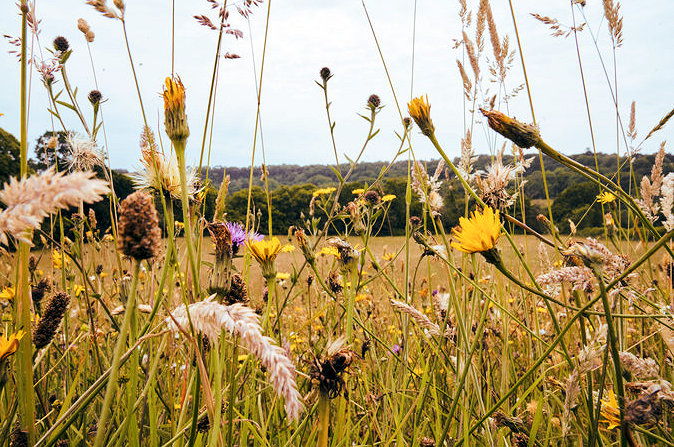
Sir David also presents a segment of the show from a meadow near Charmouth in Dorset
“This is a great ambition fulfilled”
Sir David added:
“I joined the BBC in 1952, and television was restricted to London only. Bristol had a Natural History Unit on the radio but it didn’t have television.
“So we had a meeting and they said: ‘Look here, you’re doing natural history and I think we should come to some agreement on this, because when television comes here we want to do natural history television.
“Tell you what, we’ll do British natural history, and you can do all this stuff in Africa.’
“I said: ‘That suits me down to the ground,’ but the result was I was not allowed to make programmes about British natural history, so this is a great ambition fulfilled.”
Alastair Fothergill, series producer, said he was delighted that Sir David had agreed to present on location, and amazed by how much he achieved during the filming.
He added that it was vital to raise awareness of nature in our islands and how increasingly fragile it is, as intricately connected species rely on habitats, and one another, for survival.
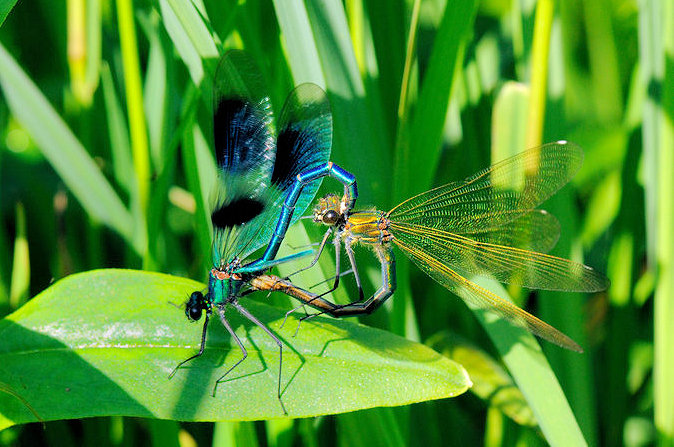
Banded demoiselle damselflies fanning wings in Somerset
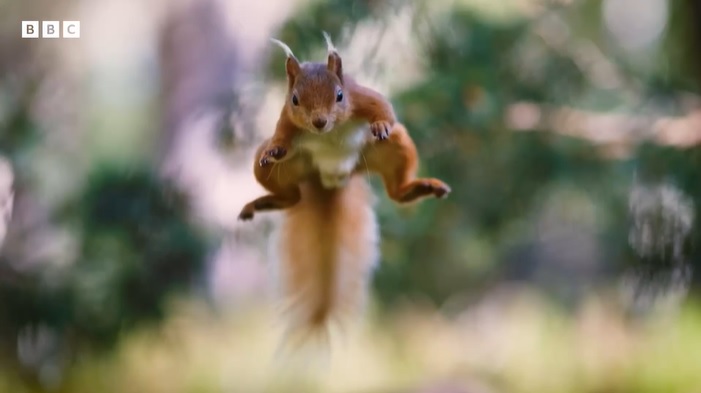
Red squirrels are among the creatures whose fragile future is highlighted in Wild Isles
Doing justice to rich and varied wildlife
Alastair said:
“David introduces every episode and closes the opening and last episode with very powerful pieces about the fact that, as this is our home, it is our responsibility to try to restore nature.
“Ever since I worked on the original Blue Planet, Planet Earth and Frozen Planet series, I have always wanted to cover the British Isles and our natural history with a similarly ambitious and epic approach.
“I knew that nobody had ever had the opportunity before to really do justice to the spectacular scenery and rich and varied wildlife found at home.
“Our temperatures range from subtropical in the far south to arctic conditions on the top of the Cairngorms in Scotland. Our coastline is over 22,000 miles long and we benefit from the warming effect of the Gulf Stream.
“Our position on the globe is perfect for summer visitors from the south and winter visitors from the north. All these factors combine to create one of the richest natural histories in Europe.”
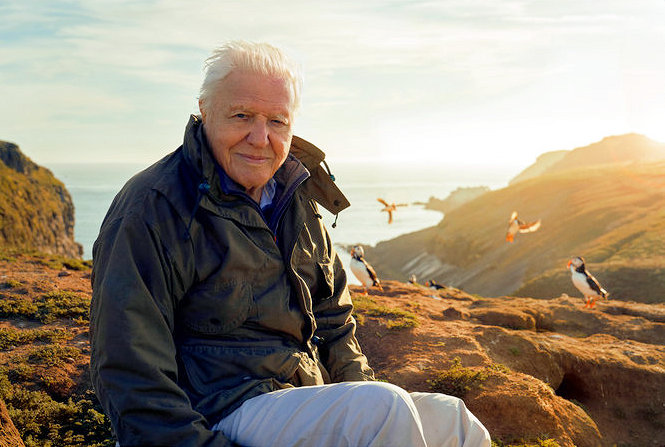
Sir David scaled the cliffs at Skomer despite having a knee replacement and a pacemaker
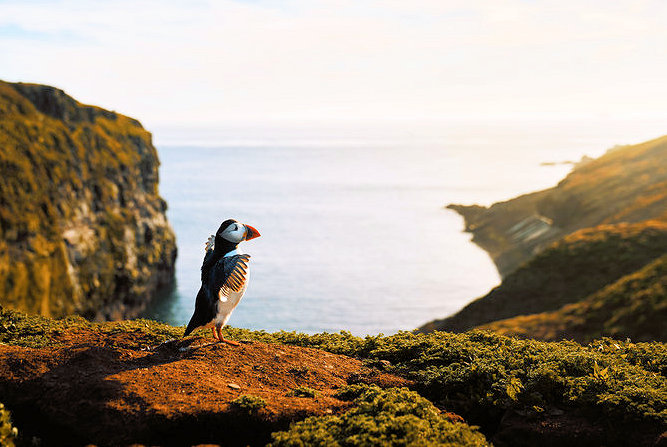
Puffin colonies at Skomer welcomed the BBC film crew with open wings
“David managed amazingly”
Alastair added:
“At Skomer, David filmed with puffins in June, and viewed Manx shearwater chicks leaving their nest for the first time in August.
“There are around 67 steep steps from where you get off the boat to when you reach the first path at the top of the island.
“For all of us, especially with all our very heavy camera kit, those steps were something of a challenge. But David managed them amazingly despite his 96 years.”
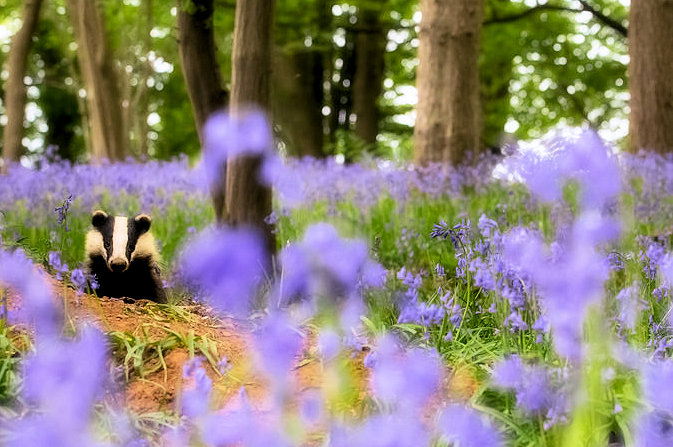
Adolescent female badger in an ancient bluebell wood in Sussex
Where film crews worked on Wild Isles
Filming locations and species filmed over 200 shoots across three years:
- Diverse geology: Purbeck; Cumbria; Lake District; Dorset; Scottish Highlands; Skye; Yorkshire Dales; North Pennines; Northern Ireland
- Arctic Britain and golden eagle: Scottish Highlands
- Ancient oaks and dormouse: Oxfordshire; Sussex
- Badgers and bluebells: Oxfordshire; Somerset; Avon; Kent
- Meadows and pollinators: Avon; Gloucestershire; Wiltshire
- Foxes: Gloucestershire
- White-tailed eagles and geese: Islay
- Demoiselles: Somerset
- Kingfishers and chalk streams: River Stour; River Avon; River Frome
- Bass Rock gannets: Bass Rock; Firth of Forth
- Puffins and gulls; Farne Islands, Northumberland; Skomer Island, Pembrokeshire
- Orca and seals: Shetland Isles
Watch the BBC trailer
Further information
- More about the Wild Isles series is on the BBC website
